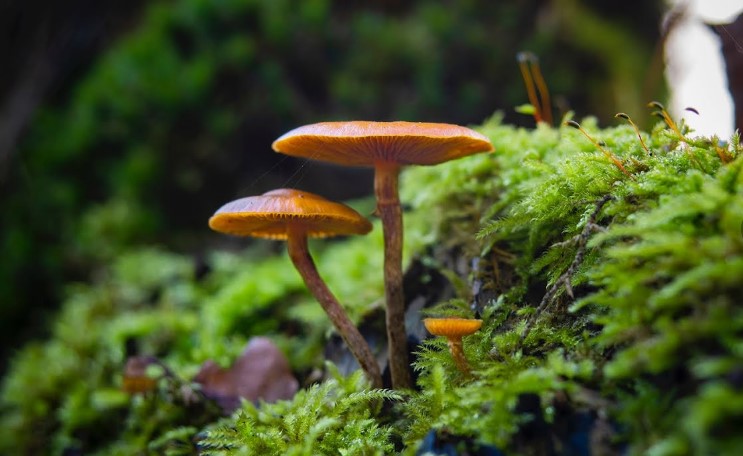Mushroom Boom signifies a notable surge in interest, cultivation, and consumption of mushrooms across various sectors. This isn’t a singular event but rather a confluence of factors driving a greater appreciation for fungi, spanning from culinary uses to their potential in medicine, sustainable materials, and even mental wellness. This exploration will delve into the multifaceted nature of this “boom,” examining its drivers, the areas experiencing the most significant growth, and the potential implications for the future.
Several key trends are fueling the increased prominence of mushrooms:
- Growing Interest in Plant-Based Diets: As more individuals explore vegetarian and vegan lifestyles for ethical, environmental, or health reasons, mushrooms have emerged as a versatile and satisfying meat alternative. Their umami flavor and meaty texture make them a popular substitute in various dishes.
- Recognition of Nutritional Value: Beyond their culinary appeal, mushrooms are increasingly recognized for their nutritional content. They are a good source of B vitamins, selenium, potassium, and in some cases, vitamin D (especially when exposed to UV light). They are also relatively low in calories and fat while providing dietary fiber.
- The Rise of Functional and Medicinal Mushrooms: Perhaps the most significant driver of the “mushroom boom” is the growing awareness of “functional” or “medicinal” mushrooms. Species like Lion’s Mane, Reishi, Chaga, Cordyceps, and Turkey Tail are being studied for their potential cognitive-enhancing, immune-boosting, anti-inflammatory, and adaptogenic properties. This has led to a surge in their use as dietary supplements, in functional foods and beverages, and even in potential therapeutic applications.

- Innovation in Cultivation Techniques: Advances in mushroom cultivation have made it more accessible and sustainable to grow a wider variety of species. Indoor farming techniques allow for year-round production, reduced land and water usage compared to traditional agriculture, and the potential to utilize agricultural waste as a substrate. This makes mushroom cultivation an attractive option for small-scale farmers and even urban environments.
- Sustainability and Environmental Awareness: Mushrooms are increasingly being recognized for their environmental benefits. They can be grown on agricultural byproducts, effectively reducing waste. The mycelium (the vegetative part of the fungus) is also being explored for its potential in creating biodegradable packaging, textiles (mushroom leather), and even building materials.
- The Psychedelic Renaissance: While distinct from culinary and functional mushrooms, the renewed interest in psilocybin-containing mushrooms for their potential therapeutic benefits in treating mental health conditions like depression, anxiety, and PTSD 1 has also contributed to a broader cultural awareness and acceptance of fungi.
Areas Experiencing the Boom
The “mushroom boom” is evident across several sectors:
- Food Industry: Increased consumption of culinary mushrooms in everyday cooking and as meat alternatives in processed foods and restaurant menus. The availability of a wider variety of gourmet and exotic mushrooms is also expanding.
- Supplement and Wellness Industry: A significant surge in the market for dietary supplements containing functional mushrooms in various forms like capsules, powders, and extracts. They are marketed for a range of benefits, including cognitive enhancement, stress reduction, and immune support.
- Beverage Industry: The emergence of mushroom-infused coffees, teas, and other beverages that incorporate functional mushrooms for their purported health benefits without the jitters associated with caffeine in some cases.
- Agriculture: An increase in mushroom cultivation, both on commercial farms and smaller, local operations, driven by demand and the relatively low barrier to entry compared to traditional farming. This is particularly relevant in regions seeking sustainable and alternative income sources for farmers.
- Materials Science: The exploration and development of mycelium-based materials as sustainable alternatives to leather, plastics, and construction materials.
- Mental Health: The growing research and acceptance of psilocybin-assisted therapy for various mental health conditions, although this remains a legally regulated area.
Implications of the Mushroom Boom
The “mushroom boom” carries several potential implications:
- Improved Public Health: Increased consumption of nutritious culinary mushrooms and the potential benefits of functional mushrooms could contribute to better overall health and well-being.
- Sustainable Agriculture and Waste Reduction: Wider adoption of mushroom cultivation can contribute to more sustainable food systems by utilizing waste products and requiring less land and water.
- Development of Novel Materials: Mycelium-based materials offer the potential for eco-friendly alternatives to conventional, often polluting, materials.
- Economic Opportunities: The growing mushroom market creates new opportunities for farmers, entrepreneurs, and researchers in cultivation, processing, and product development.
- Potential Therapeutic Breakthroughs: Continued research into medicinal and psychedelic mushrooms could lead to new and effective treatments for various physical and mental health conditions.
However, it’s also important to approach the “mushroom boom” with a degree of caution. The regulation of the supplement industry, including mushroom products, can be less stringent than pharmaceuticals, requiring consumers to be discerning about product quality and claims. Furthermore, while research into functional and medicinal mushrooms is promising, more rigorous human studies are often needed to fully substantiate the purported benefits. Read More>>>>>
In conclusion, the “mushroom boom” represents a significant shift in how we perceive and utilize fungi. Driven by a confluence of factors spanning health, sustainability, and innovation, mushrooms are moving from the fringes to the mainstream. While further research and responsible development are crucial, the “mushroom boom” holds considerable potential for positive impacts across various aspects of our lives and the planet.








